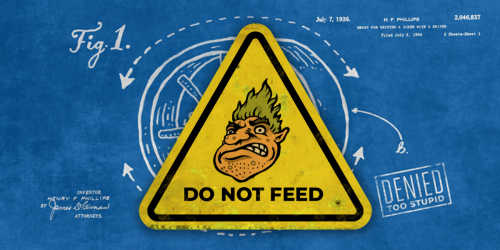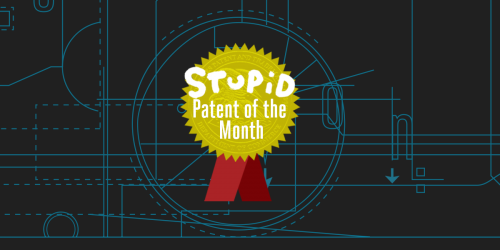Free speech in the patent world saw a big win on Friday, when the New Hampshire Supreme Court held that calling someone a “patent troll” doesn’t constitute defamation. The court’s opinion [PDF] is good news for critics of abusive patent litigation, and anyone who values robust public debate around patent policy. The opinion represents a loss for Automated Transactions, LLC (ATL), a patent assertion entity that sued [PDF] more than a dozen people and trade groups claiming it was defamed.
EFF worked together with the ACLU of New Hampshire to file an amicus brief [PDF] in this case, explaining that the lower court judge got this case right when he ruled against ATL. That decision gave wide latitude for public debate about important policy issues—even when the debate veers into harsh language. We’re glad the New Hampshire Supreme Court agreed.
Last week’s ruling court notes that “patent troll” is a phrase used to describe “a class of patent owners who do not provide end products or services themselves, but who do demand royalties as a price for authorizing the work of others.” However, the justices note that “patent troll” has no clear settled definition. For instance, some observers of the patent world would exclude particular entities, like individual inventors or universities, from the moniker “patent troll.”
Because of this, when ATL’s many critics call it a “patent troll,” they are expressing their subjective opinions. Differences of opinion about many things—including patent lawsuits—cannot and should not be settled with a defamation lawsuit.
“We conclude that the challenged statement, that ATL is a well-known patent troll, is one of opinion rather than fact,” write the New Hampshire justices. “As the slideshow demonstrates, the statement is an assertion that, among other things, ATL is a patent troll because its patent-enforcement activity is ‘aggressive.’ This statement cannot be proven true or false because whether given behavior is ‘aggressive’ cannot be objectively verified.”
The court ruling also upheld tough talk about ATL’s behavior beyond the phrase “patent troll.” For instance, the court looked at statements referring to ATL’s actions as “extortive,” and rejected defamation claims on that basis, finding that was rhetorical hyperbole. Another ATL critic had complained that ATL’s efforts “cost them only postage and the paper their demand letters are written on.” This, too, was hyperbole, part of the give-and-take of a public debate.
This case has its origins in the patents of inventor David Barcelou, who claims he came up with the idea of connecting ATMs to the Internet. As Barcelou describes in his defamation lawsuit, he saw “his business efforts fail,” before he went on to transfer patent rights to ATL and create a patent assertion business.
ATL began suing banks and credit unions that were allegedly using Barcelou’s patents in their ATMs. In all, about 200 different companies paid ATL a total of $3 million in licensing fees to avoid litigation—that’s an average of $15,000 per company.
But when they were finally examined by judges, ATL’s patents failed to hold up. The Federal Circuit invalidated several patent claims owned by ATL, and further found that the defendants’ ATMs did not infringe the Barcelou patents.
After that court loss, ATL had a steep drop in licensing revenue. That’s when ATL launched its defamation lawsuit, blaming its critics for its setbacks.
For software developers and small business owners who bear the brunt of patent troll demands and lawsuits, the New Hampshire decision sends a clear message. If you’re upset about the abuses inherent in our current patent system, it’s okay to speak out by using the term “patent troll.” Calling out bad actors in the system is part and parcel of the debate around our patent and innovation policies.








